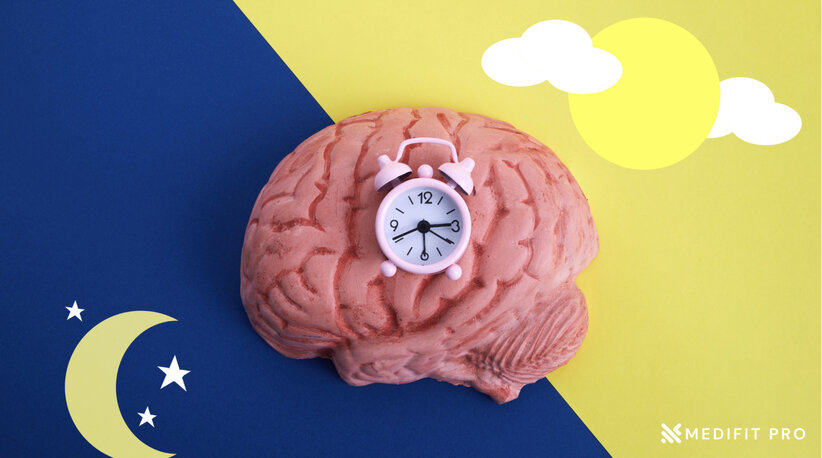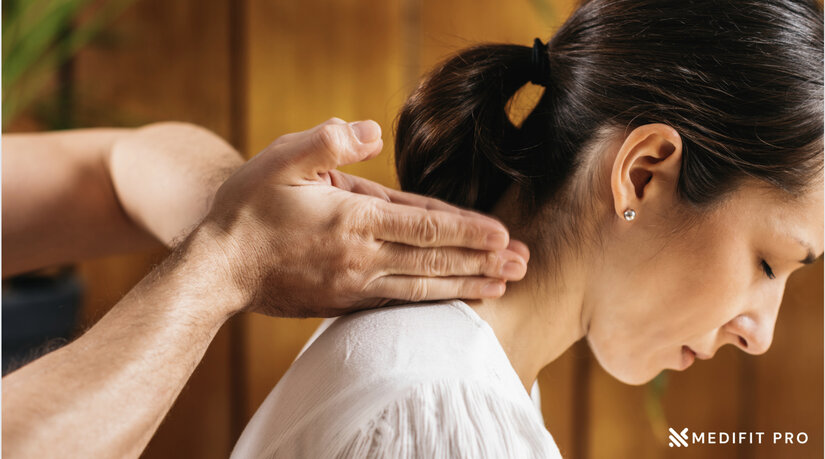Pain is a universal experience that can be caused by a variety of factors, ranging from injuries and illnesses to chronic conditions like arthritis and fibromyalgia. Many people have reported that their pain levels tend to be more severe at night, leading to disrupted sleep and reduced quality of life. But is there any scientific evidence to support the notion that we feel more pain at night?
In this article, we will explore the relationship between pain and sleep, and examine the various factors that may contribute to increased pain perception at night. We will also provide tips and strategies for managing nighttime pain, and discuss the importance of seeking medical attention for chronic or severe pain conditions. By the end of this article, readers will have a better understanding of the complex relationship between pain and sleep, and be equipped with practical tools for coping with nighttime discomfort.
II. What is Pain?
A. Definition of Pain
Pain is a complex sensory and emotional experience that is subjective and unique to each individual. It is often described as a physical sensation of discomfort or unpleasantness, but can also encompass emotional distress or psychological discomfort. Pain can be acute or chronic, and can range in intensity from mild discomfort to severe and debilitating agony. Despite its unpleasant nature, pain serves an important biological function by alerting the body to potential damage or injury.
B. Different Types of Pain
There are many different types of pain, each with its own set of characteristics and causes.
Acute pain: short-lived and occurs in response to a specific injury or illness.
• Chronic pain: persists for longer periods of time and may be caused by underlying medical conditions such as arthritis or fibromyalgia.
• Nociceptive pain: caused by damage to tissue or nerve endings.
• Neuropathic pain: caused by damage to the nerves themselves.
• Psychogenic pain: caused by psychological factors.
• Idiopathic pain: has no discernible cause.
C. Causes of Pain
Pain can be caused by a variety of factors, including:
• Inflammation
• Nerve damage
• Muscle strain
• Trauma
• Infections
• Chronic medical conditions like arthritis and fibromyalgia
• Psychological factors such as stress, anxiety, and depression
• Environmental factors like temperature changes and humidity.
III. Circadian Rhythm
A. Definition of Circadian Rhythm
Circadian rhythm refers to the natural 24-hour cycle of physical, mental, and behavioral changes that occur in living organisms.
• This internal biological clock is driven by the hypothalamus and responds to external cues such as light and temperature.
• Circadian rhythm regulates many bodily functions including sleep, digestion, hormone production, and the immune system.
B. How Circadian Rhythm Affects Pain Perception
• Pain perception is subject to circadian variations and may be influenced by the time of day.
• Research suggests that pain thresholds are highest in the morning and lowest in the evening.
• This may be due to the body’s natural release of pain-reducing hormones such as cortisol and endorphins, which tend to be highest in the morning and lowest in the evening.
• Disruptions to circadian rhythm, such as those experienced with shift work or jet lag, can lead to altered pain perception and increased sensitivity to pain.
C. Explanation of the Concept of Chronobiology
• Chronobiology is the study of biological rhythms and how they relate to physiological processes.
• This field of study encompasses circadian rhythm, as well as other biological rhythms such as ultradian (less than 24-hour cycles) and infradian (longer than 24-hour cycles) rhythms.
• Chronobiology has important implications for many areas of health, including sleep disorders, mental health, and chronic pain management.
IV. Factors That Influence Pain Perception at Night
A. Changes in Posture and Positioning During Sleep
• During sleep, the body naturally shifts positions multiple times, which can put pressure on certain areas of the body and exacerbate pain.
• Sleeping in an awkward or uncomfortable position can also lead to pain and stiffness upon waking.
• People with chronic pain conditions may find it particularly difficult to find a comfortable sleeping position and may experience increased pain at night.
B. Hormonal Changes During Sleep
• Hormonal changes that occur during sleep can also affect pain perception.
• As previously mentioned, cortisol and endorphin levels tend to be highest in the morning and lowest in the evening, which can impact pain thresholds.
• Additionally, the release of growth hormone during deep sleep can help repair damaged tissue and reduce pain.
C. Body Temperature Changes
• The body’s core temperature naturally drops during sleep, which can lead to decreased blood flow and increased stiffness and pain in some individuals.
• People with conditions that cause sensitivity to temperature changes, such as Raynaud’s disease, may be particularly susceptible to nighttime pain.
V. Coping with Nighttime Pain
A. Tips for Managing Nighttime Pain
• Maintain a regular sleep schedule and create a relaxing sleep environment to promote better sleep and reduce pain.
• Use supportive pillows or a comfortable mattress to alleviate pressure points.
• Engage in relaxation techniques such as deep breathing or meditation to help reduce stress and promote relaxation.
• Avoid caffeine and alcohol before bedtime, as they can disrupt sleep and exacerbate pain.
• Incorporate gentle exercise or stretching into your daily routine to improve flexibility and reduce pain.
B. Pain Relief Techniques
• Over-the-counter pain medications such as acetaminophen or ibuprofen can help alleviate pain.
• Topical creams or patches containing lidocaine or capsaicin can provide targeted pain relief.
• Heat therapy, such as a warm bath or heating pad, can help relax muscles and reduce pain.
• Cold therapy, such as an ice pack, can help reduce inflammation and numb pain.
C. Importance of Seeking Medical Attention
• If nighttime pain is persistent or severe, it is important to seek medical attention.
• A doctor can help diagnose the underlying cause of pain and provide appropriate treatment.
• Ignoring persistent pain can lead to worsening symptoms and potentially serious health complications.
VI. Conclusion
A. Recap of the Article’s Main Points
• Pain is a complex and multifaceted experience that can be influenced by a variety of factors.
• The circadian rhythm, or the body’s natural sleep-wake cycle, can affect pain perception and lead to increased pain at night.
• Changes in posture and positioning during sleep, hormonal changes, and body temperature fluctuations can also contribute to nighttime pain.
• Managing nighttime pain involves a variety of techniques, including maintaining a regular sleep schedule, using pain relief techniques, and seeking medical attention when necessary.
B. Final Thoughts on Pain Perception at Night
While pain perception at night can be a challenging experience, there are many ways to manage and alleviate nighttime pain. By understanding the factors that can contribute to increased pain at night and adopting healthy sleep habits and pain relief techniques, individuals can improve their quality of sleep and reduce nighttime pain. It is important to remember that persistent or severe pain should not be ignored, and seeking medical attention is crucial for proper diagnosis and treatment.
Also read Sweet Dreams: Tips to Improve Your Sleep
Pain and Sleep: Understanding the Interactions” by Harvard Health Publishing
https://www.health.harvard.edu/pain/pain-and-sleep-understanding-the-interactions



























Recent Comments